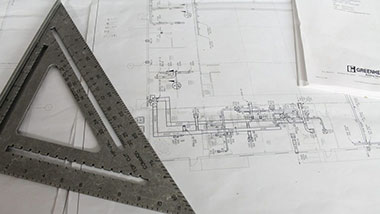Florida Medicaid Liens For Past Medical Expenses
Personal InjuryIn the case of Giraldo v. Agency For Health Care Administration, Case Number SC17-297 (Fla. July 5, 2018), the Florida Supreme Court held that federal law limits the lien rights that AHCA (Florida Medicaid) can claim to amounts recovered for past medical expenses. Florida Medicaid has no right to claim a lien for future medical expenses.
Facts From The Case
This case began when Juan Villa was injured in an all-terrain vehicle (ATV) accident. He sustained serious injuries and Florida Medicaid paid $322,222.27 for his medical care. Mr. Villa reached a settlement for $1 million and Florida Medicaid claimed a lien of $321,720.16 using a formula outlined in section 409.910(11)(f), Fla. Stat.
This statutory formula takes the total settlement minus 25% for attorney fees minus taxable costs and Medicaid gets half of what is left after those two deductions.
Further, section 409.910(17)(b), Fla. Stat. provides Medicaid recipients a venue to challenge the amount of a Medicaid lien at a hearing before the Division of Administrative Hearings (DOAH) in Tallahassee. At the hearing, the Medicaid recipient can provide evidence that a “lesser portion of the total recovery should be allocated as reimbursement for past and future medical expenses than the amount calculated by the agency pursuant to the formula set forth in paragraph (11)(f).”
Mr. Villa properly and timely petitioned for a DOAH hearing and presented uncontested evidence through an expert that $13,881.79 of the $1 million tort recovery represented the portion of the recovery that related to “past medical expenses.” See Arkansas v. Dep’t of Health & Human Servs. v. Ahlborn, 547 U.S. 268 (2006)(a personal injury plaintiff can argue that only a percentage of the plaintiff’s damages were recovered and, therefore, that Medicaid’s lien should be limited to the same percentage).
Villa died shortly after his DOAH hearing and Giraldo (his parent) took over the case on his behalf. The final order from DOAH found that Villa had failed to rebut the statutory formula because Villa failed to rebut the statutory formula by not showing that the lien exceeded the portion of his recovery allocated to future medical expenses (remember—his settlement was undifferentiated as most personal injury settlements are).
The case was appealed to the First DCA wherein the First DCA upheld DOAH’s order, thereby creating a DCA split with Willoughby v. Agency for Health Care Administration, 212 So. 3d 516 (Fla. 2d DCA 2017).
The Florida Supreme Court, however, stated in their opinion that:
Although a factfinder may reject “uncontradicted testimony,” there must be a “reasonable basis in the evidence” for the rejection. Here, Villa presented uncontradicted evidence establishing $13,881.79 as the settlement portion properly allocated to his past medical expenses, and there is no reasonable basis in this record to reject Villa’s evidence.
The Florida Supreme Court thereby reduced Medicaid’s lien to $13,881.79.
How Did They Arrive At This Figure?
As mentioned above, the plaintiff proposed an Alhborn argument that only a portion of the plaintiff’s claim was recovered because of limited liability insurance. Therefore, doing the math backwards, Villa’s argument was that he only recovered 4.3% of the overall value of his total claim. In essence, Villa was arguing that his claim was actually worth $43 million instead of $1 million, however, his claim was limited by the fact that only $1 million in liability insurance was available. Because of that fact, it is only fair that Medicaid, as a lienholder, should not be able to obtain more than its pro-rata share of the recovery ($13,881.79 is 4.3% of $322,222.27).
The Florida Supreme Court could have found that Villa’s damages were lower than $43 million but they did not do so.
Lesson To Be Learned
The lesson for a personal injury plaintiff in this case is that you must ask in order to receive. If your attorney does not ask for a reduction at a DOAH hearing, then you are stuck with the statutory formula in section 409.910(11)(f). With that being said, only cases where the savings on the lien amount is significant should be argued at a DOAH hearing rather than every case. Further, you also need to know that you will not know how the DOAH hearing will turn out when you settle your case. Instead, you will be required to settle your liability case first and hope for the best at a DOAH hearing if you seek a reduction of Medicaid’s lien on your case.
Again, as was the focus of the Giraldo case, we are only talking about Florida Medicaid’s claim for past medical expenses (there is no claim of lien that can be made on future medical expenses paid by Medicaid unless a Medicaid-qualifying special needs trust is established where there is a payback upon death provision).
Need Help Resolving Florida Medicaid Liens On Your Case?
If you have a Florida personal injury case with Medicaid liens, then you will probably need the help of a personal injury attorney to help you get your case resolved. We are a personal injury law firm located in Lakeland, Florida and we can help you with your case. Call us today to schedule your free consultation with an attorney.


